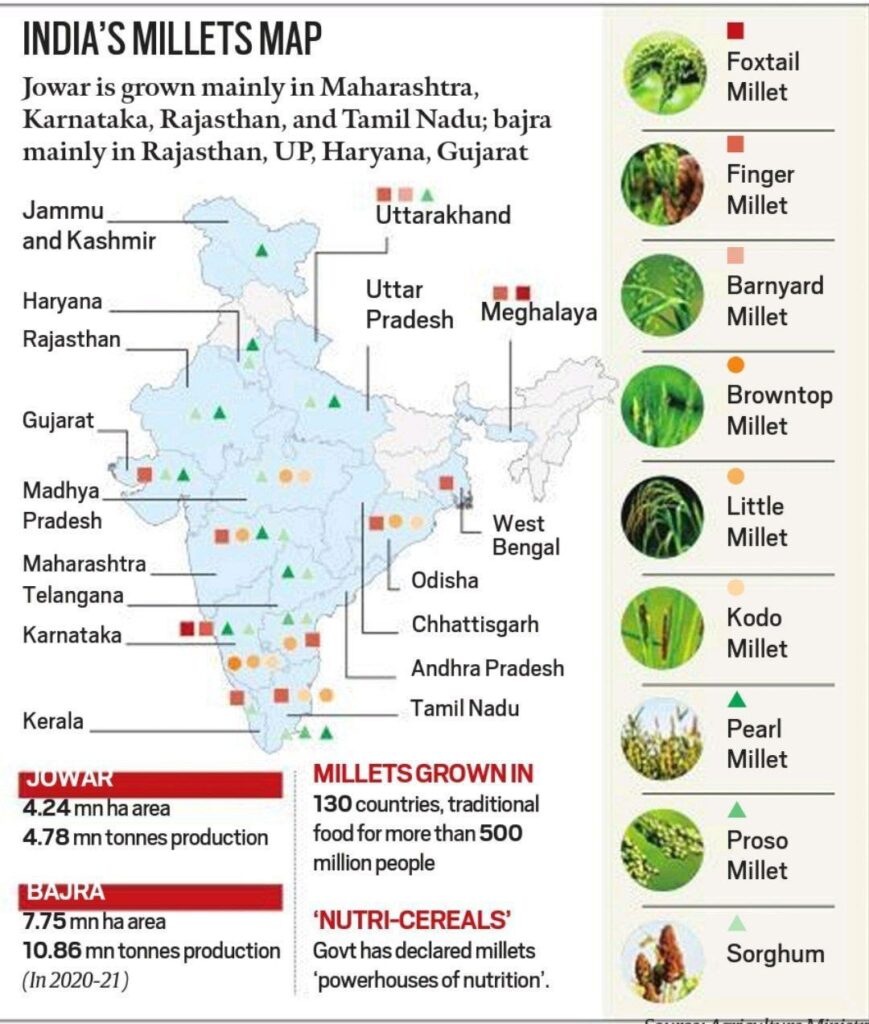Millets encompass various small-seeded annual grasses cultivated as grain crops, thriving in marginal lands across temperate, subtropical, and tropical regions. Notably, India leads global millet production, contributing to 20% of the world’s total and 80% of Asia’s output.

Significance: Millets offer economic and nutritional advantages over traditional staples like wheat and rice. Their elevated protein, fiber, and essential vitamins, along with minerals like iron, make them a cost-effective and nutritionally superior choice. Additionally, millets boast rich calcium and magnesium content.
Health Benefits: Millets play a crucial role in addressing lifestyle diseases such as obesity and diabetes due to being gluten-free and having a low glycemic index.
Environmental Impact: Millets leave a minimal ecological footprint, with significantly lower carbon and water usage compared to rice—showcasing their sustainable and environmentally friendly characteristics.

